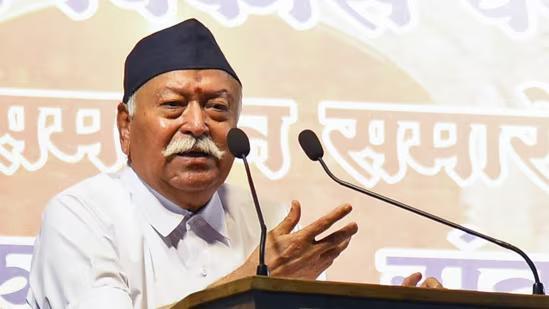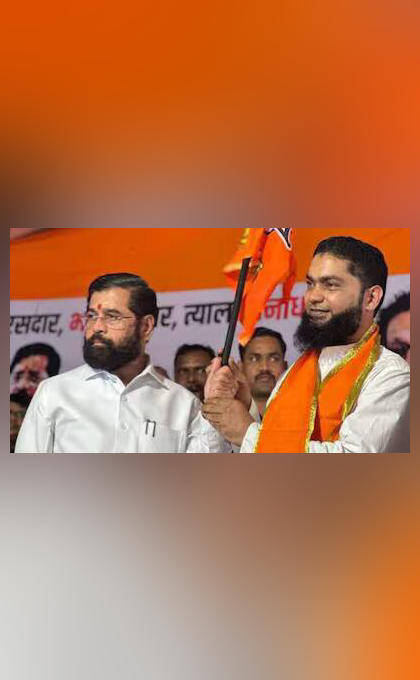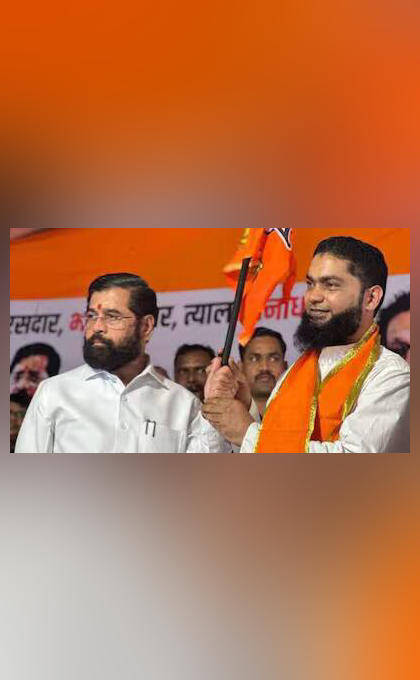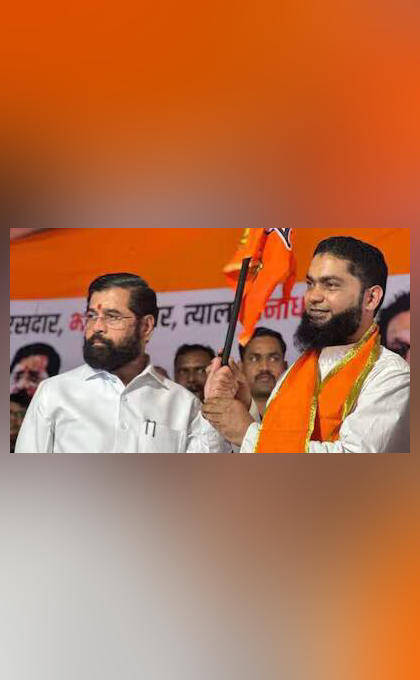
Muslims & Christians are also Hindus if they follow Indian culture: RSS chief Bhagwat
In a recent statement, Rashtriya Swayamsevak Sangh (RSS) chief Mohan Bhagwat has sparked a new debate by redefining the term “Hindu”. According to Bhagwat, anyone who takes pride in Bharat and follows Indian culture is a Hindu, regardless of their religious affiliations. This statement has far-reaching implications and challenges the traditional understanding of Hinduism as a religion. In this blog post, we will delve into the nuances of Bhagwat’s statement and explore its significance in the context of Indian society and politics.
Bhagwat’s statement was made during a public gathering, where he emphasized that the term “Hindu” is not limited to a particular religion or community. He said, “If Muslims and Christians, even without giving up their worship, customs and traditions, worship this country, follow Indian culture…then they are Hindus.” This definition of Hinduism is based on cultural and national identity rather than religious beliefs. Bhagwat’s statement suggests that Hinduism is not just a religion, but a way of life that encompasses a shared culture, history, and geography.
The RSS chief’s statement has been seen as an attempt to broaden the definition of Hinduism and make it more inclusive. By emphasizing the importance of cultural and national identity, Bhagwat is trying to create a sense of unity and shared belonging among people of different religious backgrounds. This approach is in line with the RSS’s ideology of promoting a unified Indian identity, which transcends religious and cultural differences.
However, Bhagwat’s statement has also been criticized by some as an attempt to undermine the distinct identities of minority communities. Some have argued that the statement is a form of cultural assimilation, where minority communities are expected to abandon their unique cultural practices and traditions to conform to a dominant Hindu culture. This criticism is not unfounded, as the RSS has been accused in the past of promoting a Hindu nationalist agenda that seeks to marginalize minority communities.
Despite these criticisms, Bhagwat’s statement reflects a deeper reality about Indian society. India is a country with a rich cultural diversity, where people of different religious backgrounds have coexisted for centuries. The country’s history is replete with examples of cultural exchange and synthesis, where different religious traditions have influenced each other and created a unique Indian culture. Bhagwat’s statement recognizes this cultural diversity and seeks to promote a sense of shared Indian identity that transcends religious differences.
Bhagwat also emphasized that India does not need an official label to be a ‘Hindu Rashtra’ because its civilization already reflects it. This statement is significant, as it suggests that the RSS chief is not seeking to impose a particular religious or cultural identity on the country. Instead, he is arguing that India’s unique cultural heritage and civilization are already reflective of a broader Hindu identity. This approach is more nuanced and subtle, as it recognizes the diversity of Indian culture and seeks to promote a sense of shared belonging among people of different backgrounds.
In conclusion, Bhagwat’s statement has sparked a new debate about the meaning of Hinduism and Indian identity. While some have criticized the statement as an attempt to undermine minority identities, others see it as an attempt to promote a more inclusive and broad definition of Hinduism. As India continues to grapple with issues of identity, culture, and nationalism, Bhagwat’s statement reflects a deeper reality about Indian society and its rich cultural diversity. Ultimately, the question of what it means to be a Hindu is complex and multifaceted, and Bhagwat’s statement is just one contribution to this ongoing debate.





